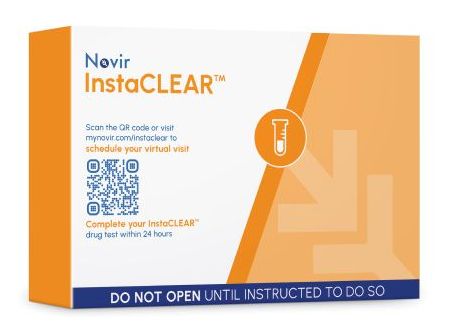The question of a Zero Tolerance Policy versus a Second Chance Agreement (also called a “Last Chance Agreement”) is a very important consideration when creating your drug-free workplace policy.
When someone has a positive drug test you can certainly terminate and move on. Plenty of businesses institute a Zero Tolerance rule. Ideally it would screen out only the employees that are a true detriment to your company. Keep in mind, however, that your policy needs to treat each employee the same, and you, as the employer, have considered what happens if a truly valuable employee tests positive.
“It is important to apply policies consistently with all employees and to train managers to do so. This reduces employers’ risk of discrimination or the perception of discrimination, which can lead to legal claims,” advises Lori Goldstein of Law Office of Lori A. Goldstein.
What if a valued employee fails a drug or alcohol test?
It happens. And it’s frustrating.
Does a positive drug test mean the employee is being irresponsible? Maybe. Could she have a problem with addiction? Possibly. It’s hard to know, and, frankly, it’s not your job to know. You can certainly terminate and replace her, or you can opt to give her a Second Chance.
As of 2016, the National Council on Alcoholism and Drug Dependence estimates that there are 14.8 million people in the U.S. who abuse drugs and 70% of those people are employed. There is a good chance that you may have great employees who are quietly struggling with addiction.
Second Chance and Employee Assistance
There are many situations when a Second Chance makes sense. If you have an Employee Assistance Program (EAP), then you’re all set. If not, and you have offered a Second Chance in your drug-free workplace policy, then you’ll need a place for the employee to go for treatment. There are many programs out there, both for-profit and not-for-profit, and your Second Chance or Last Chance Policy should describe who is responsible for payment and what is required to earn the opportunity to return to work. An employee’s health insurance may even pay for it.
Why Enforce the “Return to Duty” Drug Test?
When reintegrating an employee after a positive drug or alcohol test, be sure that the employee is truly fit to return. Many employers feel an increased sense of responsibility once an employee has breached the Drug-Free Workplace Policy. Holding the offender accountable is critical, and It’s important for your own peace of mind to know that the worker is fit for duty.
Is There Value in Follow-Up Testing?
“One and Done” is not sufficient. Just as drug users prepare for pre-employment drug tests, a returning worker can easily stay clean long enough to pass a Return-to-Duty drug test. Your Second Chance program should consider the safety of everyone in your workplace. Remember there is an entire industry out there (Ask Google how to pass a drug test) that revolves around helping users avoid detection.
Best practice is to require a specific number of unannounced follow-up tests for at least the first year. Your EAP may be able to help.
Do You Still Prefer Zero Tolerance?
If you do, then there’s nothing wrong with it. Just put it in writing and be prepared to enforce it consistently.
If you decide a Second Chance Policy is better for your organization, then put that in writing too.
If you’d like to discuss how we InOut Labs help you with a drug-free workplace policy or testing program send us a message or schedule a short call.


